Special Session: Integrated Sensing and Communications for Internet of Things
The integration of radar/sensing with communications, heralded as a new frontier in information technology by the communications and signal processing communities, has sparked a plethora of cutting-edge applications. Known as Integrated Sensing and Communication (ISAC), this research trend can be realized through the synergistic design of shared spectral and hardware resources, employing strategies like cohabitation designs and dynamic spectrum allocation/access with interference management. ISAC's implementation can also adopt a co-design approach, enabling parallel operation with optimized performance. This emerging paradigm offers distinct advantages, including efficient resource utilization and balanced multi-functional performance, hinting at a potential future where dual-functional networks empower civilian services through sensing and tailored communication.
Related topics:
Important Dates:
Submission Deadline: March 25, 2026
Notification: April 25, 2026
Registration: May 10, 2026
Submit Method:
1, submit it via the link: http://www.easychair.org/conferences/?conf=icicsp2026 (after entering the link, click on the corresponding topic)
2, send your manuscript to icicsp@vip.163.com with subject "Submit+Special Session-8+Paper Title". (请通过邮件发送稿件,邮件题目:Submit+Special Session-8+Paper Title)
CHAIRMANS:
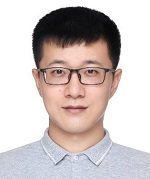
Hongwen Yu received his B.Eng., M.Eng. and Ph.D. degree in communication and information engineering from Shanghai University, Shanghai, China, in 2011, 2014 and 2020, respectively, and his Ph.D. degree in electronic engineering from the University of Technology Sydney, NSW, Australia in 2022. Currently, he is an Associate Professor in the Department of Communication and Information Engineering, Shanghai University. His research interests include reconfigurable intelligent surface, mmWave communications and B5G/6G wireless communications.
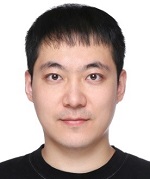
Yuan Gao (IEEE member) is an assistant Professor at the School of Communication and Information Engineering, at Shanghai University. He received his B.S. degree from the Beijing University of Posts and Telecommunications, Beijing, China, in 2013, his M.S. degree from Imperial College London, London, U.K., in 2014, and his Ph.D. degree from the University of Sheffield, Sheffield, U.K., in 2019. He was with Ranplan Wireless Network Design Ltd from 2018 to 2021, when he worked as a wireless engineer to develop a world-leading wireless network design and optimization tool. He joined Shanghai University in 2022 and focuses on the key enabling technologies of 6G, including joint sensing and communication (ISAC), dynamic spectrum management, space-terrestrial integrated networks (STIN) and AI. He served as the workshop chair of SMC-IoT 2023 (best workshop organizer award), IEEE ICCCN 2024, VTC fall 2024, etc.
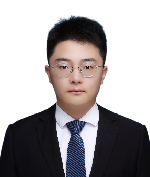
Yixiao Gu received the B.Eng. degree in communication engineering from the Huazhong University of Science and Technology, Wuhan, China, in 2017, and the Ph.D. degree in information and communication engineering from Shanghai Jiao Tong University, Shanghai, China, in 2023. He is currently an Assistant Professor with the Department of Communication and information Engineering, Shanghai University. His current research interests include edge computing, integrated sensing and communication, and mobile AI systems.
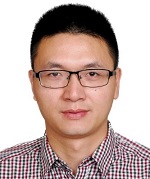
Yanzan Sun (IEEE member) was born in 1982, and received a Ph.D. degree in Control Theory and Control Engineering from Tongji University, China, in 2011. In 2009, he was awarded a National government study abroad scholarship to pursue his research as a visiting student in Electrical Engineering Department at Columbia University. From 2011 to 2012, he was a Research Engineer at Huawei Technologies Co., Ltd. where he researched enhanced Inter-cell Interference Coordination (eICIC) in 3GPP Long Term Evolution (LTE) systems. He is currently an associate professor in the School of Communications and information engineering at Shanghai University. His research interests include key technologies of 5G, wireless resource management, and green communications.
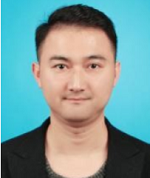
Chen Zhi is an Associate Researcher at Shanghai University, specializing in autonomous systems, including UAV control, multi-agent swarms, and robotics for disaster response and education. An awardee of Shanghai's "Eastern Young Scholar" and "Super Postdoctoral Fellow," he has led NSFC and defense projects, published 30+ EI/SCI papers, holds 4 patents, and serves as Secretary-General of the China Instrument and Control Society's Embedded Systems Committee. Formerly a Huawei engineer and UTS visiting scholar, his work bridges academia and industry.
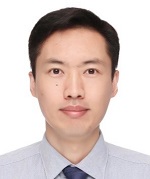
Zhichao Sheng received the Ph.D. degree in electrical engineering from the University of Technology Sydney, Sydney, NSW, Australia, in 2018. From 2018 to 2019, he was a Research Fellow with the School of Electronics, Electrical Engineering and Computer Science, Queen’s University Belfast, Belfast, U.K. Currently he is an Associate Professor with Shanghai University, Shanghai, China. His research interests include signal processing and artificial intelligence. He received the Exemplary Reviewer Certificate of the IEEE WIRELESS COMMUNICATIONS LETTERS in 2022 and 2023
